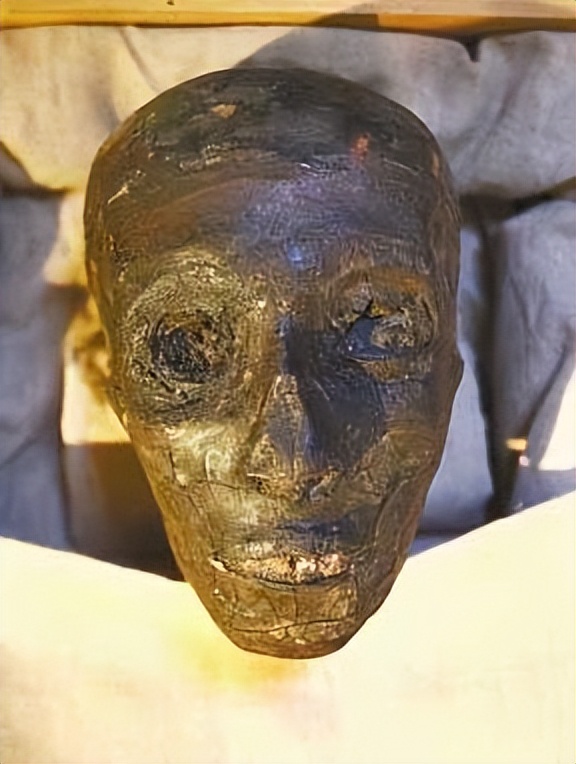In 1925, Howard Carter was assassinated by the medical scientist D. Darry. Derry, accompanied by him, untied the already carbonized bandage on Tutankhamun's mummy. They were amazed to find that the pharaoh looked very young, his face was very clean, his nose was squashed during the mummification process, and his earlobes were pierced with ear eyes.

Tutankhamun mummified head
Subsequently, the mummies were tested with X-rays and found that the king was about 18 years old when he died. The evidence is as follows: first, the upper end of the king's femur is almost completely combined with the entire backbone, and the femoral head has been combined with the backbone, but the binding line is still clearly recognizable; second, the examination of the king's teeth found that there is a wisdom tooth on the right side of the king's gum bed.
In 1968, Harrison, an expert at the University of Liverpool in the United Kingdom, conducted a second X-ray examination of Tutankhamun's mummy and found that the king's sternum and ribs were missing; there was a blurry and obviously shallow area at the junction of the head and neck, which experts believe was most likely left by an old wound.
In 1978, Harris, a medical scientist at the University of Michigan in the United States, conducted a third test on Tutankhamun's mummy and found that there were obvious scars on the back of the king's skull and a small piece of bone was missing. Based on this, they speculate that Tutankhamun may have died of murder. As soon as this idea was proposed, it quickly became popular.
Spot A is the location of the skull fracture
In 2005, Egypt's Supreme Council for Cultural Relics conducted a fourth test of Tutankhamun's mummies, this time using CT technology, with the participation of italian and Swiss experts. After testing, experts agreed that the fracture of the pharaoh's head may not have been a prenatal trauma, but an opening opened during the process of mummification to extract the brain marrow.
In 2005, Zahi Hawass, chairman of Egypt's Supreme Antiquities Commission, said in an interview with the British BBC broadcasting company: "I am very sure that Tutankhamun definitely did not die of murder, and that the cause of his death was most likely an infection caused by a fractured leg during his lifetime. Although he was very confident in his conclusions, many Egyptologists around the world did not agree with this view.
Havas